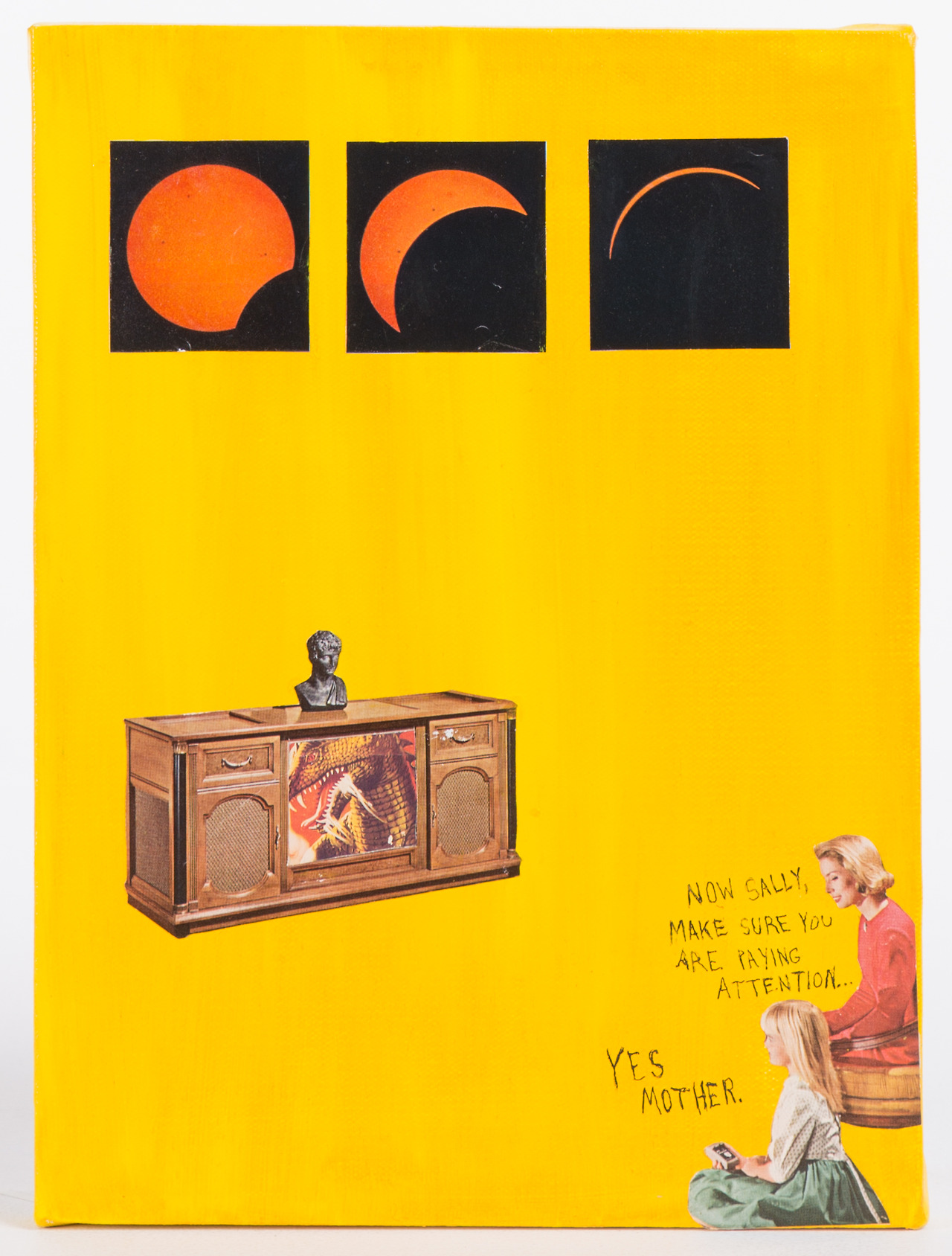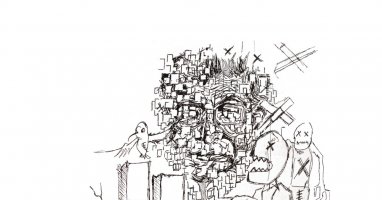I don’t really possess a coherent answer to the question, why do I live the way I do, or why do I choose to live at all. Every time that I attempt to answer this question, my thoughts become scattered and the attempt almost becomes futile … I mean, “because I want to” is not a sufficient answer, is it? That being said, this is my attempt at answering the question: what is the meaning of life.
When thinking about what is meant by, “Because I want to,” I found that the saying is illusive. It connotes that the person has put little thought into fulfilling a selfish desire. Imagine, for example, that there is a child walking down the street. The child passes a homeless man, but then doubles back quickly to steal his coat and run off. The homeless man later files a complaint, and when the child is caught, the police ask him why he did what he did. The kid responds, “Because I wanted to.” By this example, this act appears to be an unreflective display of hedonism; however, a simple response is not necessarily correlated to a simple reason. In fact, the child probably evaluated his decision on many levels. He could have stolen the coat to attain money, respect from his parents or kids at school, warmth, etc. Furthermore, these reasons may have changed as the child reflects on this moment at an older age. One reason, however, did not change: the kid was attempting to achieve happiness, just like the rest of humanity. Considering what I have said above, I no longer think that “because I want to” is a poor response to this question, because when one evaluates what is meant by this term, one is forced to confront layers of reasoning that actually go in to an action before coming to the foundational one that everyone can relate to; Life is the pursuit of happiness.
Now, someone may ask me to define happiness, for clarity or as criticism, but I cannot. If I could, I would be a lot happier. I have, however, experienced it before, when I was really little. Ever since then I have been attempting to recreate that feeling, and in this attempt I have discovered two principles: (1) An improper evaluation of condition leads to unhappiness; and, (2) we have to experiment and share our happiness with others.
I will begin by explaining the first principle. A human’s ability to evaluate is what separates us from other animals. With evaluation, we have the ability to compare ourselves in relation to our past-self, present-self, future-self, and in relation to others. It is this ability that can make us the happiest or the saddest. If we evaluate often and properly, we can increase happiness. For example, imagine the happiest time in your life. With this moment in mind, evaluate the reasons why it was the happiest time in your life. The reasons you have come up with are probably not too obscure. They are probably related with friends, loved ones, creativity, or doing something you enjoy. Through this evaluation, you have now isolated those things that make you happy, and because you have isolated them, you are now able to peruse them, which will subsequently result in increased overall happiness. By evaluating often one can continue to increase happiness.
Consequently, if one improperly evaluates oneself or oneself in relation to others, then our evaluation skills can do the opposite. For example, if we begin evaluating our abilities to those we are envious of, we can begin to have a diminished self-worth—especially if you try to adopt the values of a person who is mistaken on their means to happiness. In other words, this person is actually not living a very happy life. From my experience, this kind of person usually believes money is a means to happiness, which is obviously false. To see the falsity, one must spend time watching people in the third world or indigenous cultures. These people appear to be happy with substantially less material possessions. (As an extra precaution, you should be wary of anyone with a large truck: this probably means that they value their life more than the future of humanities).
My second principle, experimentation and sharing happiness with others, needs some explanation. Throughout my humble 22 years of life, I have found that anything that has given me joy has diminished over time—even the accomplishment of a childhood dream. This understanding was bestowed on me as a 20-year-old man living in Whistler: I was snowboarding everyday, drinking my face off, and meeting all the “right” people. At one point though, this dream life came crumbling down and I became depressed. I started asking one question: is this all there is to live for? If it is, then I have done it all and therefore I am done with life. Through reflection on this one-third-life crisis, I came to the conclusion that it fermented from a lack of experimentation—no matter how exciting my life seemed. It was stagnant.

From what was said above, it follows that one must always be looking for new ways to enjoy old hobbies while experimenting with new ones. If one does not, then one will no longer have a will to live. It is this reasoning that has lead me to believe that the rigidness of the school system is to blame for the depression pandemic. By forcing people to act and respond in a particular way, one is limiting creativity and therefore limiting any sort of experimentation and understanding of oneself, which is strange because schools are supposed to be engineered for the betterment of children. Moreover, the school system teaches children that pursuing their interests is worthless. For example, teachers often tell students that they cannot further study what they are interested in because the student needs to prepare for the test next week, and if the student doesn’t get a good grade, then the teacher doesn’t get paid.
Someone may criticize my understanding of the meaning of life by attempting to reduce it to hedonism. However, I do not associate my understanding with hedonism as I am not only after the pursuit of pleasure. One won’t find me at the local brothel, masturbating in my basement all day, or grinding girls and doing drugs at the local rave—this is because these examples create a dependency and take away from ones will, which is central to the pursuit of happiness. As an example, imagine Dionysus as a young boy who begins drinking by his own volition and continues drinking because it is pleasurable. Ten years later, however, Dionysus is now an alcoholic. He is losing his license, job, family, and health, but is unable to stop drinking. Dionysus’ whole life has changed and his pursuit of happiness is diminished to a struggle with alcoholism, rather than engaging in what gives him joy.
Someone may argue this by saying, “What if alcoholism gave Dionysus true happiness?” However, this argument is ridiculous and has not been thought through. The argument assumes that the pains of losing a license, job, family, and health would be less than the pleasure Dionysus gets from alcohol, which is a preposterous thought. No one would abandon health, family, a license, and a job for alcohol.
The problem with people in developed countries is that we are not taught to properly evaluate, and definitely not taught to experiment. We play copycat with our neighbor and evaluate happiness based on an economic scale, expecting that to translate into happiness. For example, imagine two houses on the street. One house has a three-car-garage, basketball hoop, modern paint colors, and appears to be 2200square feet. The other house has a two-car-garage, no basketball hoop, shingles that need replacing, and appears to be 1700 square feet. Following from this description, I guarantee that most people would conclude that the larger home houses happier people. Someone may argue, however, that a larger house can provide happiness for pragmatic reasons like providing each individual their own space. This cannot be true, however. People do not go into debt for practical reasons, they go into debt because they feel inadequate; celebrities and media are partially to blame here. Currently the role of celebrities and media is to make us feel inadequate. A commercial’s main goal is to make us feel inadequate so that the advertiser can show us how to fill that inadequacy. They do this by placing products in our face and telling us to buy them if we want to be happy, because the celebrities that have them are happy. Since we have been indoctrinated to believe this, we believe that people with bigger houses are happier. Moreover, if what I have said is false, then why is everyone buying a bigger house, a bigger car, and a bigger boat? It must be because we think that happiness follows from these purchases. If this assumption is not true, and people actually do believe that happiness can be found in things like what you enjoy, family, friendship, and love, then why do people keep investing in other things? Why do we keep working all day and putting our friends, family, etc., on the sidelines? Either we are lying to ourselves about what makes us happy and we should continue purchasing, or we are too stupid to realize how we are abandoning all the things that we believe are fundamental to happiness for a nicer car, a bigger boat, and a newer house.
Another reason why I believe that people are poor evaluators is by assessing whom we have put in charge. We have a prime minister that is willing to bleed the earth dry for “a better Canada;” for a Canada that can flourish economically, a Canada where everyone can work out of town on the rigs for two-weeks-on and one-week-off; a Canada where drug dealers, real-estate agents, and strippers become the highest paid people; a Canada where anyone who has anything bad to say about our lifestyle can leave or stop driving cars and using oil.
The remedy for the developed countries is to learn how to evaluate more frequently and experiment. We need to evaluate for our future, and not be the alcohol-addicted Dionysus’ that are stuck in specific ways of thought. We need parents that are able to evaluate, parents that are not addicted to ideologies they know are not valuable. We need parents that care about the future of their children and allow their children to experiment and discover what makes them happy, rather than forcing their kids into education or work, or anything. All of the great discoveries have come from those who have experimented, and if we can teach the youth that is ok to do so, I am confident that it will benefit not only the individual, but also the population.
As I see and hear the youth talk around me, they are lost. They believe that they are supposed to live according to a social narrative of school, work, home, marriage, kids, and retirement. However, the narrative is too specific and rigid to accommodate for the multiplicity of individuals in developed countries. It provides no space for evaluation or experimentation, which subsequently diminishes the option of pursuing passions and interests, or pursing something “because I wanted to.” Because in our culture, following the social narrative should be what you want to do, if it is not then there is something wrong with you, not the narrative.
Consequently, I sit in school surrounded by students who hate being there; students who wake up every morning wanting to be somewhere else, to be doing something else, but they cannot. They cannot because that would be stepping outside the narrative and if they do step outside the narrative, their parents punish them. Their parents will make them pay back all the money they spent on education, begin to charge them rent, or force them to work full time. This reasoning, however, is creating a pandemic right before our eyes. Ever wonder why there are so many stressed out students and students on anti-depressants? It is because they are forced every day for four years to wake up and do something that they loathe. That type of psychological torcher should not be bestowed on anyone—it is too destructive for an individual.
Therefore, I think that improved evaluation skills and a new social narrative is key to providing a remedy for the western world. An improved system of evaluation will allow people to realize what actually matters in their life and a new social narrative will result in new means to explore and share joy. Moreover, in contrast to the social flat line that our current system promotes, this solution creates a social cycle: through better evaluation new means of exploration will develop and through exploration, a better system of evaluation will develop. This social system creates a constant renewal, rather than the stagnant narrow-minded view that we currently hold so dear.







